Berkshire Hathaway Reached 1 Trillion Market Cap
Berkshire Hathaway , has recently achieved a remarkable milestone—crossing the $1 trillion market capitalization mark. This achievement is not just a testament to the company’s steady growth over the decades but also a reflection of its unique structure, strategic investments, and an unparalleled approach to cash management.
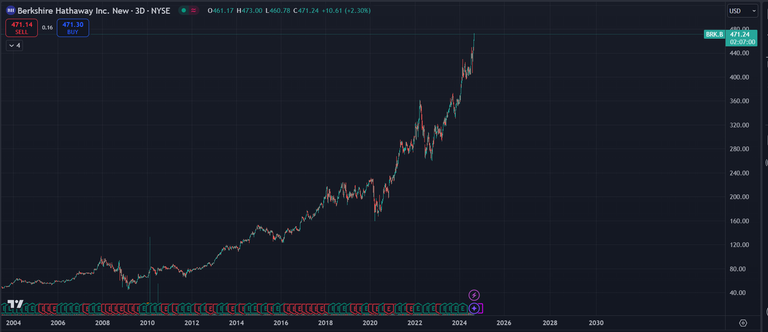
The Origins
Berkshire Hathaway wasn’t always the financial giant it is today. Initially founded as a textile manufacturing company, it underwent a significant transformation under Warren Buffett’s leadership. Buffett, often referred to as the "Oracle of Omaha," took control of Berkshire Hathaway in the mid-1960s and gradually shifted its focus from manufacturing to investing. His approach was simple yet profound: acquire businesses with strong fundamentals and invest in companies with durable competitive advantages.
Over the years, Buffett’s strategic acquisitions and investments have built Berkshire into a diversified holding company with significant stakes in various industries, including insurance, utilities, railroads, and consumer goods. However, one of the most critical components of Berkshire’s success has been its ability to generate and manage cash efficiently.
The Apple Stock Sale
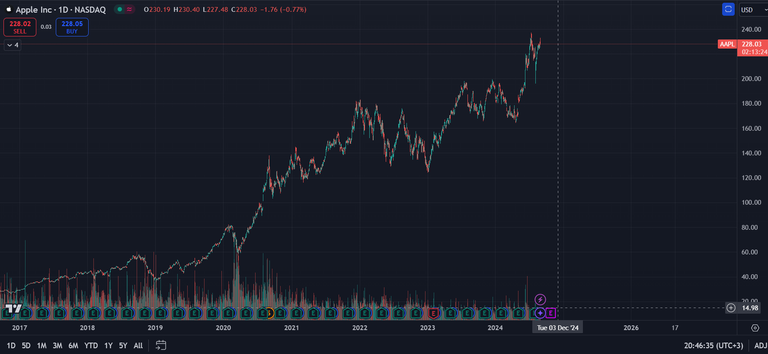
One of the most surprising moves Buffett made recently was the partial sale of Berkshire’s massive stake in Apple ($AAPL). Apple has long been the crown jewel of Berkshire’s portfolio, representing nearly 30% of its total investments. The decision to sell 49.33% of its Apple shares, therefore, raised eyebrows across the investment community.
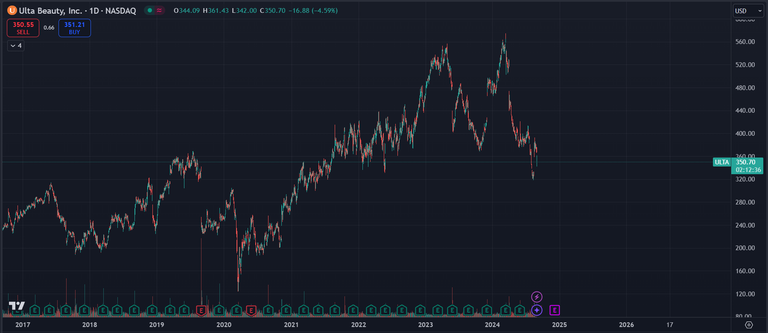
While the sale was unexpected, it aligns with Buffett’s long-standing philosophy of buying undervalued assets and selling when valuations appear stretched. Despite the sale, Apple remains a significant part of Berkshire’s portfolio, and this move is likely part of a broader strategy to reallocate capital towards other opportunities that Buffett believes could yield higher returns in the future.
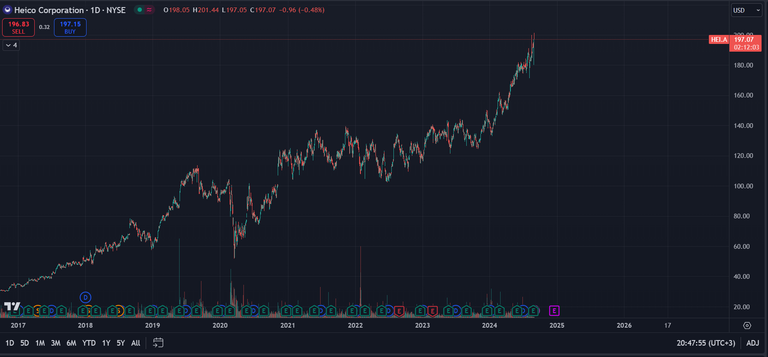
In addition to the Apple sale, Buffett opened new positions in Ulta Beauty ($ULTA) and HEICO ($HEI.A), indicating a diversification into industries that Berkshire has traditionally not been heavily involved in. These moves, combined with an increase in Berkshire’s stake in Occidental Petroleum ($OXY), reflect Buffett’s belief in the potential of these companies to deliver substantial returns.
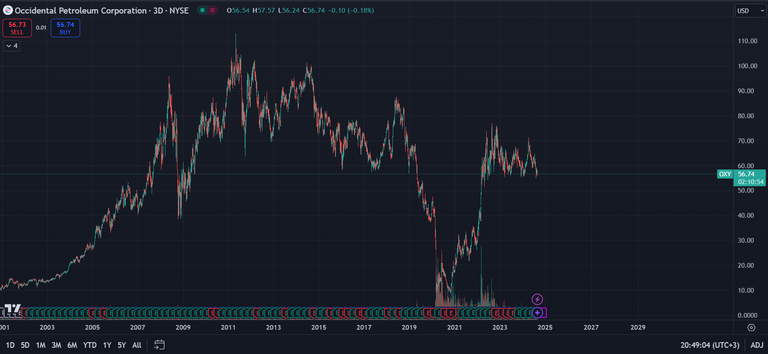
On the other hand, Buffett also exited his positions in Snowflake ($SNOW) and Paramount ($PARA), signaling a shift away from sectors he may deem as overvalued or less promising.
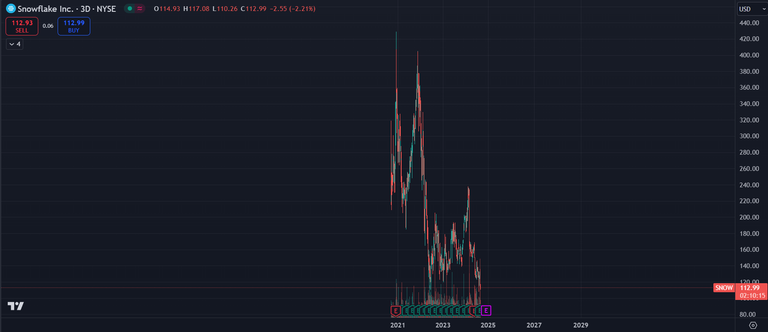
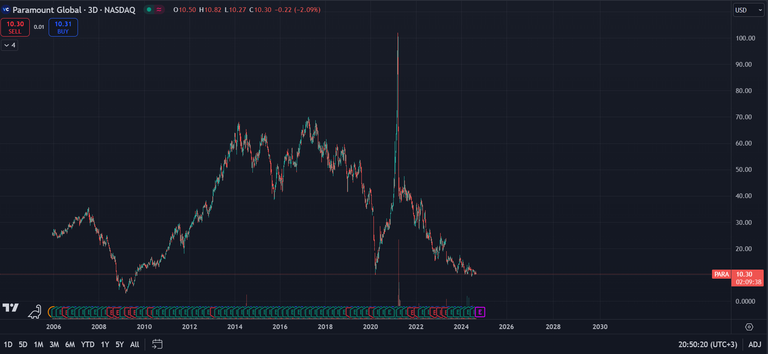
Berkshire Hathaway
Berkshire Hathaway’s remarkable success isn’t solely due to its investment acumen; it also stems from the company’s distinctive organizational model. Functioning both as a holding company and an investment powerhouse, Berkshire manages a diverse array of subsidiary businesses while maintaining significant equity stakes in publicly traded companies.
The conglomerate's portfolio encompasses a wide range of industries, from the highly profitable insurance sector to railroads and utilities. Among its most prominent subsidiaries are GEICO , a leader in auto insurance, BNSF , a major railroad operator, and Berkshire Hathaway Energy , which delivers energy to millions, with a growing emphasis on renewable sources.
These subsidiaries consistently generate substantial cash flows, contributing to Berkshire's financial strength through regular dividends and profits. However, the true financial engine of the company lies within its insurance operations. Through its insurance businesses, Berkshire controls a massive amount of cash out of the premiums collected in advance of potential claims. While these funds are technically clients money, they function as a low-cost source of investment capital, allowing Buffett to deploy large sums into various investments without drawing down Berkshire’s own reserves.
This capability to generate and reinvest capital has been a critical factor in Berkshire’s sustained growth. Unlike traditional financial institutions, Berkshire's insurance float remains stable, insulated from the risks that typically affect banks, and thus provides a secure and dependable source of funds for ongoing investments.
The Cash Reserves and Strategic Positioning
At present, Berkshire Hathaway boasts a formidable cash reserve—a financial buffer that has been carefully built up over many years. This significant liquidity is one of the key factors behind Berkshire’s recent ascent to a $1 trillion market capitalization. In an environment where many companies are heavily leveraged, Berkshire’s robust cash reserves stand as a testament to its financial prudence and resilience.
These reserves not only serve as a safeguard against market volatility but also equip Berkshire to seize opportunities during economic downturns. With this considerable liquidity, the company is well-positioned to acquire undervalued assets when market prices decline, setting the stage for future profitability.
Buffett’s conservative approach to cash management has often been questioned during bullish market phases, where the expectation is for companies to aggressively invest their capital. Nevertheless, this strategy has proven to be highly effective, particularly in times of economic instability. Berkshire’s ability to strategically acquire assets during market dips exemplifies Buffett’s disciplined and long-term investment philosophy.
Ready for the Future
Berkshire Hathaway’s journey to achieving a $1 trillion market cap is a reflection of disciplined investment practices, strategic foresight, and a corporate structure that has enabled steady growth over decades.
The recent adjustments in its portfolio, including the partial sale of Apple shares and the significant accumulation of cash, suggest that Buffett is preparing Berkshire for future opportunities. The company’s extensive liquidity ensures it is ready to capitalize on potential market corrections, allowing it to acquire undervalued assets and continue delivering superior returns.
Posted Using InLeo Alpha
I don't know how that name 'Oracle of Omaha' came about yet I must say it really fits Warren Buffet. Indeed he will remain a historical disciplined investor. Looking from the structures above, he merits his successes